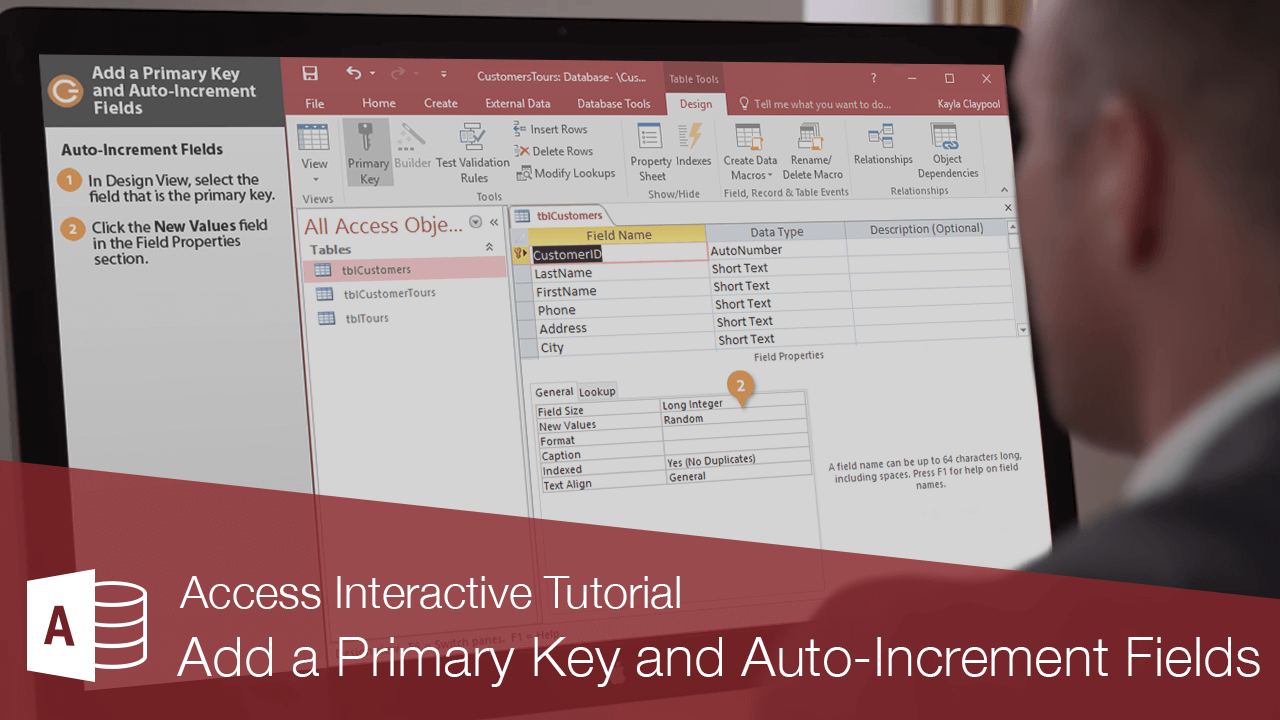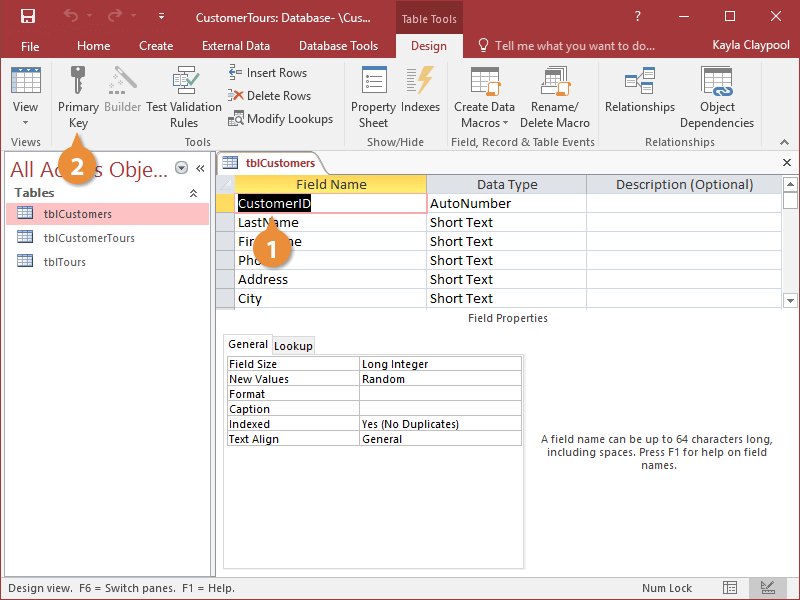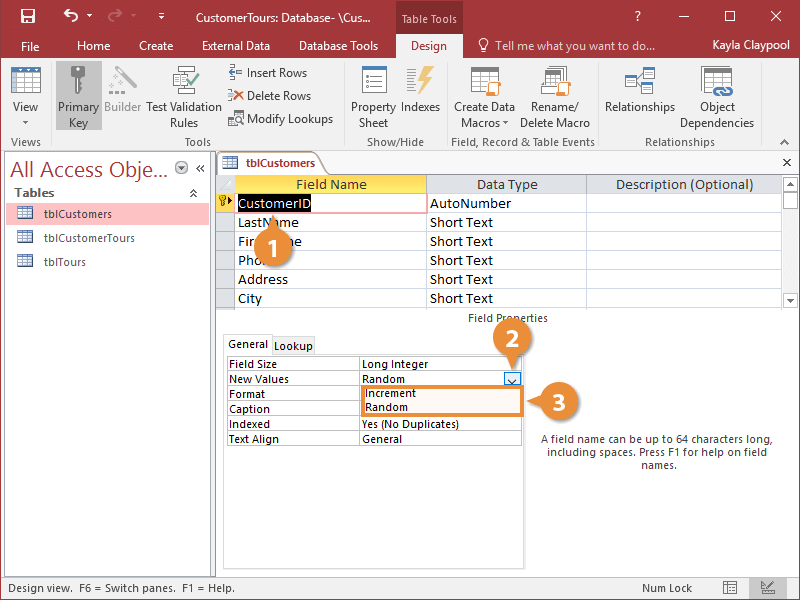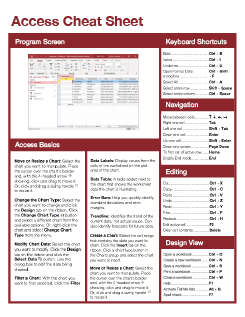Add a Primary Key and Auto-Increment Fields
How to Add a Primary Key and Auto-Increment Fields in Access

Access Training Features:
-
Interactive bite-sized lessons
-
Get Certified
-
Accurate skill assessments
-
Customizable, LMS-ready content




